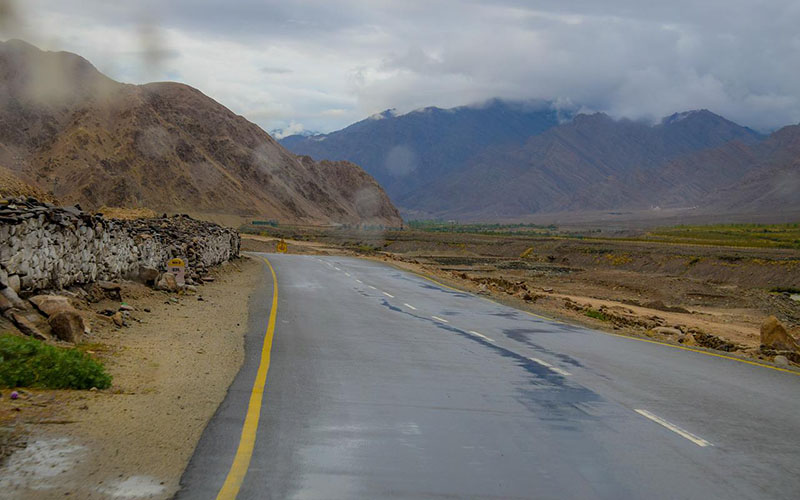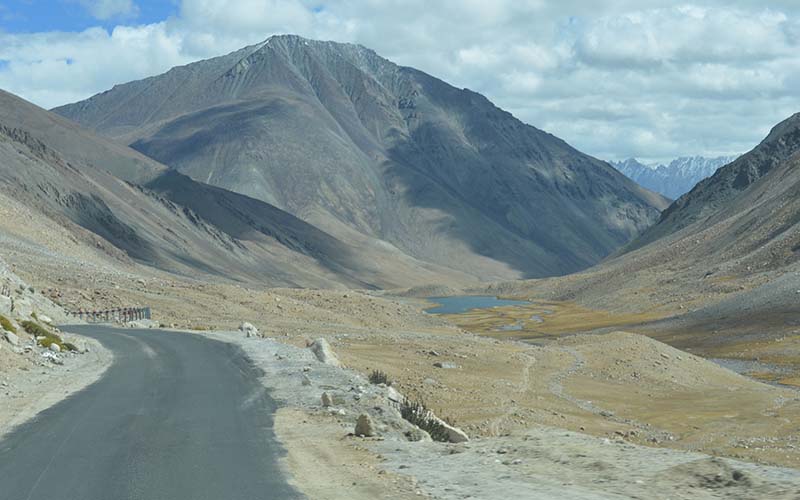One of the spectacular places to travel in India, The Himalayas are renowned for drawing large numbers of tourists from all over the world. Indians have long made the mountain range their destination of choice, particularly during the hotter months of the year when they want to get away from the oppressive heat of the plains. It is an adventurous and offbeat tourist area that is home to a diverse array of plant and animal life. These locations have gained even more popularity over the past few years because of the expansion of social media, which has increased the footfalls . This, in turn, has led to an increase in the accumulation of plastic trash in the delicate ecosystem of the Himalayas.
To conserve the ecology and reduce carbon footprints in the Himalayas, the management of the Union Territory of Ladakh has found a sustainable solution.
They have released an order of building roads out of plastic waste.
They have concluded that at least ten percent of the road will be created from the ever-increasing amount of trash plastic.
10 Percent of all Roads must be made of plastic
The Administrative Secretary of the Public Works and Highways Department in Ladakh is the one who decided to pass the formal order about this endeavor. In this document, it is stated that the development of all bituminous roads in Ladakh must incorporate the utilization of at least ten percent of waste plastic, including plastic bottles, containers etc.
Book Now: India Visa Online
Benefits of Plastic-Made Roads in Ladakh
The objective here is to get rid of the masses of rubbish in plastic form that visitors have accumulated over the years. Plastic roads often have a longer lifespan than conventional asphalt concrete roads since they are more durable and likely to last longer. This results in a reduction in the total sum of money spent on road maintenance. In addition, they feature a surface that is more refined and can endure the effects of water.
Institute for Research on Central Roads
At least ten percent of the nation’s roadways will be constructed out of plastic, and the Central Road Research Institute (CRRI) will be in charge of teaching those responsible for its construction. In addition, the directive specified that the department was expected to guarantee that plastic was shredded by machines in Leh and Kargil and should thereafter be used in the construction of roads.
Construction Training begins
In addition, the government of Ladakh has begun sending local engineers and scientists to the Central Road Research Institute (CRRI), which is located in New Delhi, for training. According to an official, a group of five key scientists from the Central Road Research Institute in New Delhi has already been entrusted with arranging training sessions with local engineers. These sessions are already taking place.. The utilization of plastic waste, the utilization of locally accessible materials, and the utilization of cold mix technology for speedier road building remained the focus areas during training.
There are 703 kilometers of national highways of plastic in 2021
The country now has around 33,700 kilometers of plastic highways, which indicates that at least one million plastic bags are used for every kilometer of the plastic roadway. However, as of the year 2021, there has been the construction of just 703 kilometers of National Highways employing plastic roads.


